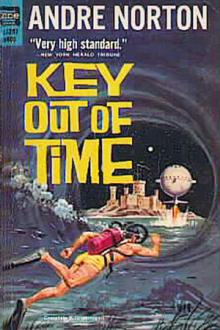Sanders of the River by Edgar Wallace (robert munsch read aloud .TXT) 📕

Read free book «Sanders of the River by Edgar Wallace (robert munsch read aloud .TXT) 📕» - read online or download for free at americanlibrarybooks.com
- Author: Edgar Wallace
Read book online «Sanders of the River by Edgar Wallace (robert munsch read aloud .TXT) 📕». Author - Edgar Wallace
Sanders said this very solemnly, and the men of the deputation were duly impressed. More impressed were they when, before starting on their homeward journey, Sanders placed in their hands a stout pole, to the end of which was attached a flat board inscribed with certain marks.
They carried their trophy six days' journey through the forest, then four days' journey by canoe along the Little River, until they came to Ochori. There, by the light of the moon, with the sacrifice of two goats (to make sure), the pole was planted so that the board inscribed with mystic characters would face the sun at noon.
News travels fast in the back lands, and it came to the villages throughout the Isisi and the Akasava country that the Ochori were particularly protected by white magic. Protected they had always been, and many men had died at the white man's hand because the temptation to kill the Ochori folk had proved irresistible.
"I do not believe that Sandi has done this thing," said the chief of the Akasava. "Let us go across the river and see with our own eyes, and if they have lied we shall beat them with sticks, though let no man kill, because of Sandi and his cruelty."
So across the water they went, and marched until they came within sight of the Ochori city, and the Ochori people, hearing that the Akasava people were coming, ran away into the woods and hid, in accordance with their custom.
The Akasava advanced until they came to the pole stuck in the ground and the board with the devil marks.
Before this they stood in silence and in awe, and having made obeisance to it and sacrificed a chicken (which was the lawful property of the Ochori) they turned back.
After this came a party from Isisi, and they must needs come through the Akasava country.
They brought presents with them and lodged with the Akasava for one night.
"What story is this of the Ochori?" asked the Isisi chief in command; so the chief of the Akasava told him.
"You may save yourself the journey, for we have seen it."
"That," said the Isisi chief, "I will believe when I have seen."
"That is bad talk," said the Akasava people, who were gathered at the palaver; "these dogs of Isisi call us liars."
Nevertheless there was no bloodshed, and in the morning the Isisi went on their way.
The Ochori saw them coming, and hid in the woods, but the precaution was unnecessary, for the Isisi departed as they came.
Other folk made a pilgrimage to the Ochori, N'Gombi, Bokeli, and the Little People of the Forest, who were so shy that they came by night, and the Ochori people began to realise a sense of their importance.
Then Bosambo, a Krooman and an adventurer at large, appeared on the scene, having crossed eight hundred miles of wild land in the earnest hope that time would dull the memory of the Liberian Government and incidentally bring him to a land of milk and honey.
Now Bosambo had in his life been many things. He had been steward on an Elder Dempster boat, he had been scholar at a mission school—he was the proud possessor of a bound copy of The Lives of the Saints, a reward of industry—and among his accomplishments was a knowledge of English.
The hospitable Ochori received him kindly, fed him with sweet manioc and sugar-cane, and told him about Sandi's magic. After he had eaten, Bosambo walked down to the post and read the inscription—
TRESPASSERS BEWARE.He was not impressed, and strolled back again thinking deeply.
"This magic," he said to the chief, "is good magic. I know, because I have white man's blood in my veins."
In support of this statement he proceeded to libel a perfectly innocent British official at Sierra Leone.
The Ochori were profoundly moved. They poured forth the story of their persecutions, a story which began in remote ages, when Tiganobeni, the great king, came down from the north and wasted the country as far south as the Isisi.
Bosambo listened—it took two nights and the greater part of a day to tell the story, because the official story-teller of the Ochori had only one method of telling—and when it was finished Bosambo said to himself—
"This is the people I have long sought. I will stay here."
Aloud he asked:
"How often does Sandi come to you?"
"Once every year, master," said the chief, "on the twelfth moon, and a little after."
"When came he last?"
"When this present moon is at full, three moons since; he comes after the big rains."
"Then," said Bosambo, again to himself, "for nine months I am safe."
They built him a hut and planted for him a banana grove and gave him seed. Then he demanded for wife the daughter of the chief, and although he offered nothing in payment the girl came to him. That a stranger lived in the chief village of the Ochori was remarked by the other tribes, for news of this kind spreads, but since he was married, and into the chief's family at that, it was accepted that the man must be of the Ochori folk, and such was the story that came to headquarters. Then the chief of the Ochori died. He died suddenly in some pain; but such deaths are common, and his son ruled in his place. Then the son died after the briefest reign, and Bosambo called the people together, the elders, the wise men, and the headmen of the country.
"It appears," he said, "that the many gods of the Ochori are displeased with you, and it has been revealed to me in a dream that I shall be chief of the Ochori. Therefore, O chiefs and wise men and headmen, bow before me, as is the custom, and I will make you a great people."
It is characteristic of the Ochori that no man said "nay" to him, even though in the assembly were three men who by custom might claim the chieftainship.
Sanders heard of the new chief and was puzzled.
"Etabo?" he repeated—this was how Bosambo called himself—"I do not remember the man—yet if he can put backbone into the people I do not care who he is."
Backbone or cunning, or both, Bosambo was certainly installed.
"He has many strange practices," reported a native agent to Sanders. "Every day he assembles the men of the village and causes them to walk past a pelebi (table) on which are many eggs. And it is his command that each man as he passes shall take an egg so swiftly that no eye may see him take it. And if the man bungle or break the egg, or be slow, this new chief puts shame upon him, whipping him."
"It is a game," said Sanders; but for the life of him he could not see what game it was. Report after report reached him of the new chief's madness. Sometimes he would take the unfortunate Ochori out by night, teaching them such things as they had never known before. Thus he instructed them in what manner they might seize upon a goat so that the goat could not cry. Also how to crawl on their bellies inch by inch so that they made no sound or sign. All these things the Ochori did, groaning aloud at the injustice and the labour of it.
"I'm dashed if I can understand it!" said Sanders, knitting his brows, when the last report came in. "With anybody but the Ochori this would mean war. But the Ochori!"
Notwithstanding his contempt for their fighting qualities, he kept his Police Houssas ready.
But there was no war. Instead, there came complaint from the Akasava that "many leopards were in the woods."
Leopards will keep, thought Sanders, and, anyway, the Akasava were good enough hunters to settle that palaver without outside help. The next report was alarming. In two weeks these leopards had carried off three score of goats, twenty bags of salt, and much ivory.
Leopards eat goats; there might conceivably be fastidious leopards that cannot eat goats without salt; but a leopard does not take ivory tusks even to pick his teeth with. So Sanders made haste to journey up the river, because little things were considerable in a country where people strain at gnats and swallow whole caravans.
"Lord, it is true," said the chief of the Akasava, with some emotion, "these goats disappear night by night, though we watch them; also the salt and ivory, because that we did not watch."
"But no leopard could take these things," said Sanders irritably. "These are thieves."
The chief's gesture was comprehensive.
"Who could thieve?" he said. "The N'Gombi people live very far away; also the Isisi. The Ochori are fools, and, moreover, afraid."
Then Sanders remembered the egg games, and the midnight manoeuvres of the Ochori.
"I will call on this new chief," he said; and crossed the river that day.
Sending a messenger to herald his coming, he waited two miles out of the city, and the councillors and wise men came out to him with offerings of fish and fruit.
"Where is your chief?" he asked.
"Lord, he is ill," they said gravely. "This day there came to him a feeling of sickness, and he fell down moaning. We have carried him to his hut."
Sanders nodded.
"I will see him," he said grimly.
They led him to the door of the chief's hut, and Sanders went in. It was very dark, and in the darkest corner lay a prostrate man. Sanders bent over him, touched his pulse lightly, felt gingerly for the swelling on the neck behind the ears for a sign of sleeping sickness. No symptom could he find; but on the bare shoulder, as his fingers passed over the man's flesh, he felt a scar of singular regularity; then he found another, and traced their direction. The convict brand of the Monrovian Government was familiar to him.
"I thought so," said Sanders, and gave the moaning man a vigorous kick.
"Come out into the light, Bosambo of Monrovia," he said; and Bosambo rose obediently and followed the Commissioner into the light.
They stood looking at one another for several minutes; then Sanders, speaking in the dialect of the Pepper Coast, said—
"I have a mind to hang you, Bosambo."
"That is as your Excellency wishes," said Bosambo.
Sanders said nothing, tapping his boot with his walking-stick and gazing thoughtfully downward.
"Having made thieves, could you make men of these people?" he said, after a while.
"I think they could fight now, for they are puffed with pride because they have robbed the Akasava," said Bosambo.
Sanders bit the end of his stick like a man in doubt.
"There shall be neither theft nor murder," he said. "No more chiefs or chiefs' sons shall die suddenly," he added significantly.
"Master, it shall be as you desire."
"As for the goats you have stolen, them you may keep, and the teeth (ivory) and the salt also. For if you hand them back to Akasava you will fill their stomachs with rage, and that would mean war."
Bosambo nodded slowly.
"Then you shall remain, for I see you are a clever man, and the Ochori need such as you. But if——"
"Master, by the fat of my heart I will do as you wish," said Bosambo; "for I have always desired to be a chief under the British."
Sanders was half-way back to headquarters before he missed his field-glasses, and wondered where he could have dropped them. At that identical moment Bosambo was exhibiting the binoculars to his admiring people.
"From this day forth," said Bosambo, "there shall be no lifting of goats nor stealing of any kind. This much I told the great Sandi, and as a sign of his love, behold, he gave me these things of magic that eat up space."
"Lord," said a councillor in awe, "did you know the Great One?"
"I have cause to know him," said Bosambo modestly, "for I am his son."
Fortunately Sanders knew nothing of this interesting disclosure.
CHAPTER IV. THE DROWSY ONE.
There were occasions when Sanders came up against the outer world, when he learnt, with something like bewilderment, that beyond the farthermost forests, beyond the lazy, swelling, blue sea, there were men and women who lived in houses and carefully tabooed such subjects as violent death and such horrid happenings as were daily features of his life.
He had to treat with folk who, in the main, were illogical and who believed in spirits. When you deal in the abstract with government of races so influenced, a knowledge of constitutional law and economics is fairly valueless.
There is one type of man that can rule native provinces wisely, and that type is best represented by Sanders.
There are other types, as, for instance:
Once





Comments (0)